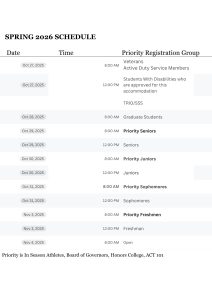Clearing up some facts about universal healthcare
A college student’s perspective on a widely debated political issue
February 20, 2020
Many, many people are hesitant about universal healthcare. It makes perfect sense the way they think about it, as they worry citizens will flood the hospitals with all their trivial issues and take up valuable time and resources that others might need.
However, if these people are willing to look at the concept with a new perspective, perhaps the skeptics might be more accepting of its ideals and proposals.
According to a study by the Lancet, conducted by epidemiologists (epidemiology is the study and analysis of the distribution, patterns and determinants of health and disease conditions in defined populations) from Yale, 37 million people in the US cannot afford healthcare, and 41 million more don’t have even adequate healthcare.
These epidemiologists then revealed that switching to a single-payer, universal health care system could potentially save the US 13% of what we already pay for healthcare, equivalent to around 450 billion, yes billion, dollars.
Every year, we could save potentially $450 billion by avoiding the endless rigamarole of health insurance and private healthcare by switching to a single-payer system.
Many candidates, such as Democrat Bernie Sanders, have proposed adopting this system in the US. On Sanders’ web page, he has the calculated cost each household would have to pay for Universal Healthcare, with a household making $50,000 only having to pay roughly $840 a year for healthcare. Consider how much health insurance costs and how much the businesses that employ you have to pay for dental or health coverage.
Now consider discarding that system and being able to afford all the care you need for roughly 4% of your yearly taxable income. Now this system is not foolproof. Some people will inevitably end up paying more under this plan then they already do for health insurance, but the trade-off is saving fellow human lives that cannot afford to even go to the doctor for a yearly check-up.
This plan isn’t a guaranteed success and this article is only for presenting a new perspective. Your concerns are entirely valid, and if they aren’t addressed in this article, feel free to look up the issue on your own to determine how you feel about the topic and remember to diversify your news sources, don’t just trust the college student writing a 300 word article.
Ethan is a freshman Secondary Education major and is a Contributing Writer for The Voice.


























